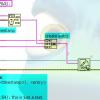-
Similar Content
-
- 3 replies
- 1,962 views
-
- 8 replies
- 4,140 views
-
Send cluster / struct from dll with a couple of int's AND a string of text to Labview
By Neon_Light,
- postlvuserevent
- dll
- (and 2 more)
- 6 replies
- 4,889 views
-
Can someone help me with an example for an existing wrapper DLL which uses function pointer with callback function 1 2
By Neon_Light,
- 26 replies
- 9,661 views
-
- 11 replies
- 13,557 views
-



Recommended Posts
Join the conversation
You can post now and register later. If you have an account, sign in now to post with your account.